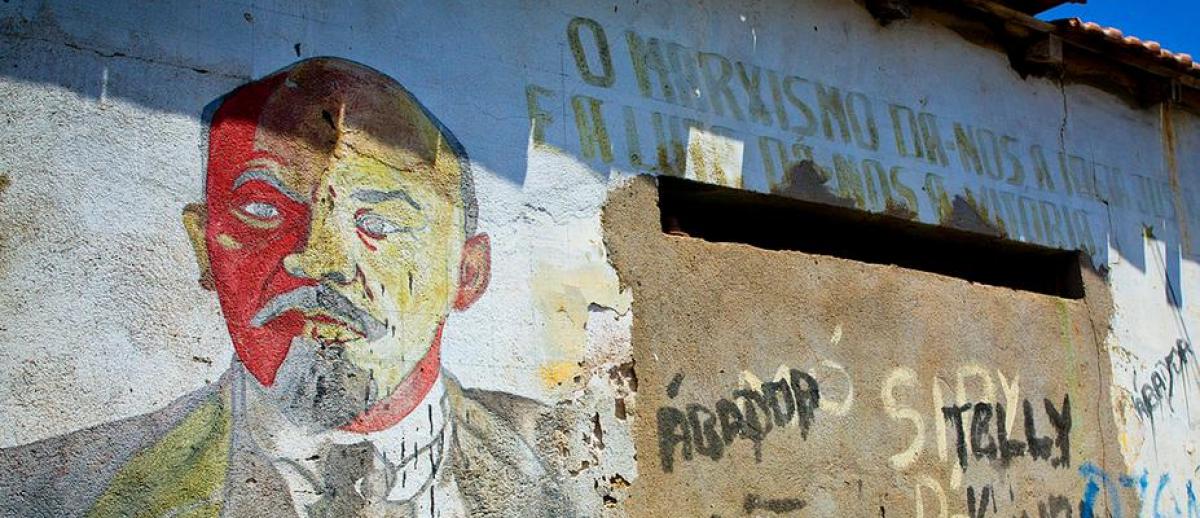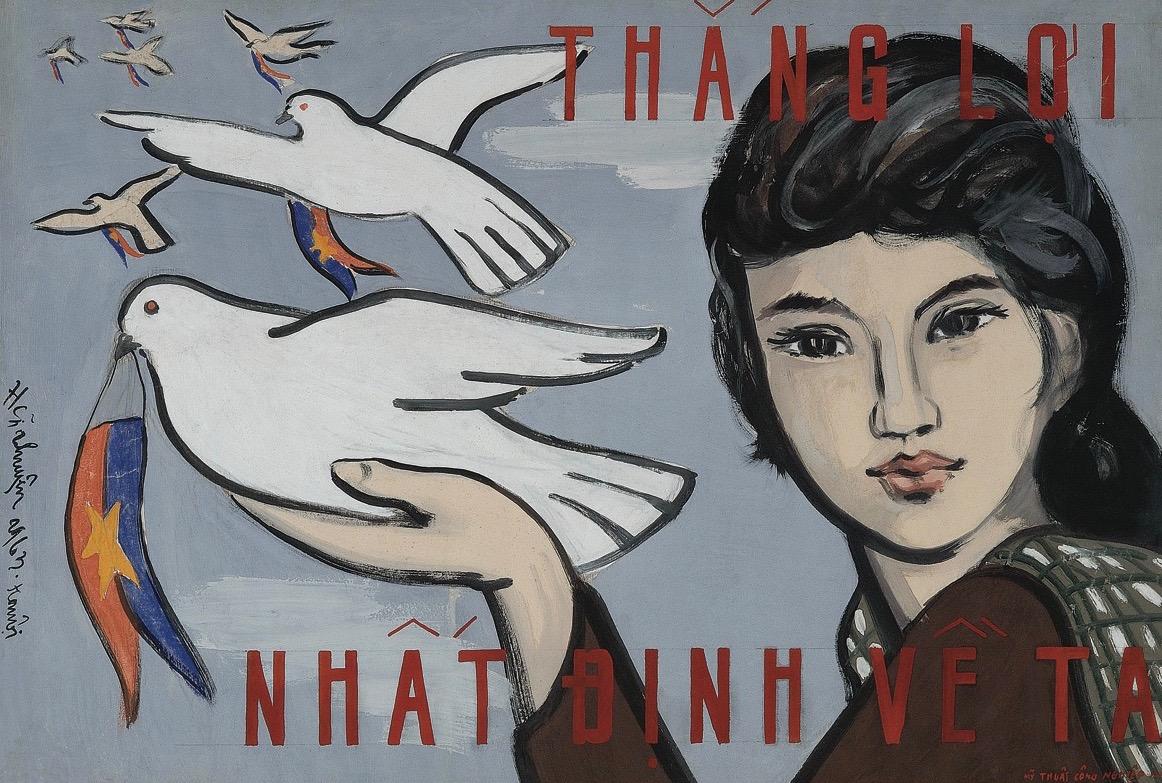Legacies of the Russian Revolution
archive


Legacies of the Russian Revolution
Lest we forget, the Russian Revolution led by the Bolsheviks under Vladimir Ilywich Lenin was one of the greatest events of the last century. Yet far more attention has been paid to the French Revolution (1789) which transformed the world and set in motion processes that to this day inform common notions of citizenship and individual rights. Out of it has grown a long tradition of theorizing on democracy and human rights.
On the other hand, the Russian Revolution, also known as the October 1917 Bolshevik Revolution, was a turning point in history when more than 2000 years of philosophy, history, religion, and culture based on the notion of natural inequality among human beings was definitively called into question. Inspired and informed by the teachings of Marx and Engels, Russian communism set in motion a movement aiming to challenge all social and political orders built upon the presumed right of the privileged to rule over others.
The origins of the Russian Revolution, its connection with Marxism and its state practices are subjects of ongoing controversy. Did Lenin and his comrades correctly interpret Marx and Engels in launching a revolution in Czarist Russia on the periphery of Western capitalism? Was the state that Lenin established and Stalin consolidated a correct application of Marxist theory? Would the Russian Revolution have fared better if Trotsky had succeeded Lenin? Why did Communism fail in Russia? I shall not go into these questions but only note what I think has been the historical impact of the Russian Revolution.
The revolution carried out by Lenin and consolidated by Stalin transformed Russia from a largely bureaucratic empire of peasants into an industrial giant, and became the fulcrum of an international movement against colonialism and unbridled capitalism. That it caused great social upheaval and concomitant distress to significant segments of society cannot be denied, but this was history’s first experiment with breaking free from the fetters of class society and the multiple social orders it sustained.
It is widely noted that in Western Europe conservative and other governments started welfare initiatives to forestall their workers opting for revolution. In Marx’s writings, the major argument advanced is about the inevitability of socialism superseding capitalism through a mass revolution driven by unresolvable contradictions emerging in the form of capitalism in advanced industrial societies such as Great Britain and Germany. In the Communist Manifesto (1848) he and Engels theorized that the mass of workers and failed middle class would become a large army of impoverished and unemployed which would rise up to overthrow the monopolistic practices of a small capitalist class.1 Lenin took his cue from that tradition but revised Marx’s theory of revolution to apply to Czarist Russia. However, a minor argument that Marx also proffered was the possibility of a path to socialism through democratic means and methods. The German Marxist Eduard Bernstein and his followers invested their faith in this democratic and parliamentary path to build a welfare state. In Scandinavia, especially Sweden, the latter type of socialist movement emerged, leading to the creation of Social-Democratic welfare states that combined substantive equality with substantive freedom.
Russian communism set in motion a movement aiming to challenge all social and political orders built upon the presumed right of the privileged to rule over others.
The Bolsheviks came to power with the help of Germany, which sought Russia’s withdrawal from World War I. Lenin arrived in Russia on a train chartered by imperial Germany. The revolution he led was carried out by only a few thousand dedicated cadres, but in order to consolidate power, years of bitter war and bloodshed were waged against the counterrevolution led by White Russians, who were supporters of the old order, as well as against occupation armies of several European states that wanted the Russian Revolution to fail. The negative impact of such violent conflict was that instead of an open and democratic development of socialism, a centralized state and Communist Party led the movement from above.
Despite its tumultuous origins, the Union of Soviet Socialist Republics (USSR) eliminated poverty and established free healthcare and highly subsidized housing, as well as free education and job security. It became a model for others to emulate, and Marxism-Leninism became the battle cry of oppressed classes all over the world.
The Soviet contribution to the defeat of Nazism and fascism has generally been obscured by Cold War propaganda, Hollywood soft power, and Western media’s powerful reach. The truth is that the Soviet Union bore the brunt of Hitler’s war machine. Although Stalin’s notorious pact with Germany is well-known, it is rarely mentioned that he first approached Great Britain and France for a military alliance, only to be refused, forcing him instead to forge a non-aggression pact with Germany. When Hitler then turned against the Soviet Union, it was his defeat at Stalingrad that turned the tide of the war and culminated in the defeat of Nazism.
Had the United States continued to build on war-era trust with the Soviet Union, one wonders if the Cold War, the arms race, and other forms of confrontation could have been averted.2

"Victory Will Be Ours." Source: The Dogma Collection
It is to be emphasized that the appeal of the Russian Revolution was greatest in the third world. There was hardly any society in the global South, then mostly under colonial rule, which did not have intellectuals converting to communism or an international socialist movement. The overall position that was taken by the Moscow-based Communist International was that anti-colonial freedom movements should be multi-class united fronts in which the communists should cooperate with other patriotic forces, including the nationalist bourgeoisie, to liberate their societies from the fetters of colonialism and imperialism. However, in some cases the nationalist movements were led by communists. The Chinese Revolution of 1949 and the liberation struggles of Vietnam and other Southeast Asian countries were examples of international attraction of communism to nationalist leaders who were also communists. Elsewhere communists were at the forefront of anti-imperialist and anti-colonial movements, and they suffered most at the hands of the colonial authorities. Hangings, long jail sentences, and systematic torture and surveillance were practised against them.
In the post-Second World War period when decolonization began to take place, the Soviet model of alternative non-capitalist development had an appeal far beyond the communist movements and communist parties in Asia, Africa and Latin America. Anti-colonial, anti-imperialist nationalist leaders ranging from liberal Fabian socialists such as Jawaharlal Nehru of India, military strongmen such as Gamal Abdul Nasser of Egypt, the leaders of the Baathist parties of Iraq and Syria, Julius Nyerere of Tanzania, the nationalist-turned communist Fidel Castro and many others emulated the Russian model of non-capitalist development. The ideas of a strong state, central planning in the form of five-year development plans, and egalitarian reforms were adopted, and welfare systems of different levels came into being.3 Later, in the 1970s, the Soviet Union actively supported armed liberation struggles against Portuguese colonies in Africa. The Anti-Apartheid movement in South Africa and Rhodesia and the Palestine liberation movement also found in Moscow strong and consistent support.
There was hardly any society in the global South, then mostly under colonial rule, which did not have intellectuals converting to communism or an international socialist movement.
However, notwithstanding such fantastic achievements and popular appeal, communism failed because of some major political and economic errors. A serious flaw in Marxism and subsequently in Leninism had been to assume that once the workers or their party captures power the state is transformed into an organization that only serves the interests of the people.4 This is unfortunately not true. The state always remains an instrument of power and it must be kept under control through checks and balances. In this regard the Western democratic theory of the state is more realistic, and the democratic state has survived and developed through a system of multiple controls including an open society, a free press, and the rule of law, thus enshrining modalities of self-correction and reform.
The Soviet Union ultimately became too bureaucratic, with extreme organization of the economy and strict limits on the freedom of individuals to write and publish, so that there was no political opposition to challenge the policies of the government. It over-spent, extended itself economically, and therefore its economy was greatly weakened. These weaknesses resulted in the disintegration of the Soviet Union in 1991—a heart-breaking demise but one that made me more realistic about what is possible and what is not.

Thamel, Nepal, 2008. Source: Wikimedia
Nevertheless, it cannot be denied that during the years 1917-1991 the Soviet Union played many positive roles, helping numerous national liberation movements and establishing and practising a welfare system of great generosity. Thus as an enduring legacy of the revolution led by Lenin and inspired by the work of Marx and Engels is that we must always value the humanism and optimism of their endeavour, and their belief that men and women can change their circumstances for the better, that nothing is ordained about the future—that the future is an open territory and that we can by our efforts change the direction of the present to make possible a better future for coming generations. It is a pity that Putin and his ilk did not celebrate the anniversary of the Russian revolution. Nevertheless, I am sure that among the older citizens of that country there are many who remember it with deep nostalgia and sadness.
1. Marx and Engels 1969: 98-137.
2. Ahmed 2013: 26-28.
3. Surendar 1992: 29-72.
4. Lenin 1932.
Ahmed, Ishtiaq. Pakistan: The Garrison State – Origins, Evolution,
Bernstein, Eduard. Evolutionary Socialism. USA: Createspace
Carr, Edward Hallet. The Bolshevik Revolution, Vol. 1, 1917-1923.
Lenin, V. I., The State and Revolution. Moscow: International
Marx, Karl and Engels, Fredrich. ‘Communist Manifesto’. In Selected
Mishra, Ajay Kumar. Soviet Policy towards Anti-Colonial Movements
2006.
Surendar, T. Soviet Policy towards Colonial and Ex-Colonial States



